Seven homicides in New York City. None connected in any way but this: They happened during the summer months, when the temperatures rise, people hit the streets, and New York becomes a more lethal place.
There were more homicides in September than in any other month last year: 52. Next highest was August, with 51.
The prime time for murder is clear: summertime. And the breakdown of deadly brutality can get even more specific. September Saturdays around 10 p.m. were the most likely moments for a murder.
The summer spike in killings is just one of several findings unearthed in an analysis by The New York Times of multiyear homicide trends. The information - detailing homicides during the years 2003 to 2008 - was compiled mainly from open-records requests with the New York Police Department, and a database of details on homicides in the city during those years is available online at nytimes. com/nyregion.
Of course, the most important trend involving murder in New York has been the enormous decline in killings over the last 15 years.
Still, hundreds of people are killed every year in the city, and The Times’s findings provide insights about who is killed in New York, as well as who does the killing, where murders occur and why.
Women, for instance, are less likely to be either victims or killers. Those who were killed - at least 73 women were in 2008 - were almost always murdered by someone they knew - boyfriends, husbands or relatives. From 2003 to 2008, the number of women killed each year by strangers was in the single digits - excluding cases in which the police do not know if the killer knew the victim.
More often than not, the weapon of choice is a firearm. Each year the percentage of people killed by firearms hovers around 60 percent. Of all the trends to emerge, the time for killing was among the most enduring.
In New York, the trend goes back well before the years covered in the database - at least as far as 1981, according to an analysis of reports by the city medical examiner’s office done by Steven F. Messner, a criminology professor at the State University of New York at Albany. And he believes it stretches back much further than that.
Nationally, in the early 1980s, scientists at the Centers for Disease Control and Prevention analyzed a decade’s worth of data across the nation, and found that homicides swell between July and September.
A prime reason murder peaks during this time has to do with the routines of people’s lives, according to Professor Messner. Summer is when people get together. More specifically, casual drinkers and drug users are more likely to go to bars or parties on weekends and evenings.
And the trend occurs in other cities, according to criminologists.
Failing to understand the basic connection between time of year and homicide rates can lead law enforcement agencies to faulty conclusions about what is happening in the streets - and it can affect their strategies.
In New York, in the early 1990s, police managers altered the working hours for some detectives, including those tracking narcotics cases and those seeking to arrest criminals wanted on open warrants. It seemed to the top officials at the time that too many officers were ending their shifts at dusk and taking weekends off.
Jack Maple, a former police deputy commissioner who wrote a book, “The Crime Fighter,” described the shortfall this way: “Unfortunately, the bad guys work around the clock.”
And in the summer months, the bad guys tend to be deadliest.
By ANDREW W. LEHREN and AL BAKER
스마터리빙
more [ 건강]
[ 건강]이제 혈관 건강도 챙기자!
[현대해운]우리 눈에 보이지 않기 때문에 혈관 건강을 챙기는 것은 결코 쉽지 않은데요. 여러분은 혈관 건강을 유지하기 위해 어떤 노력을 하시나요?
 [ 건강]
[ 건강]내 몸이 건강해지는 과일궁합
 [ 라이프]
[ 라이프]벌레야 물럿거라! 천연 해충제 만들기
 [ 건강]
[ 건강]혈압 낮추는데 좋은 식품
[현대해운]혈관 건강은 주로 노화가 진행되면서 지켜야 할 문제라고 인식되어 왔습니다. 최근 생활 패턴과 식생활의 변화로 혈관의 노화 진행이 빨라지고
사람·사람들
more많이 본 기사
- “中, 트럼프 방중 조건으로 ‘대만독립 지지안해’ 美발표 원해”
- 진짜 목적은 정권교체인가…美, 베네수엘라 군사개입 조짐
- 젤렌스키 “한국전쟁과 상황 달라…안전보장이 중요”
- 현대車사장 “관세-차값인상 직결되는건 아냐…스마트하게 대응”
- 8개월 남았는데 與野 시선은 지방선거로…교두보 싸움 ‘잰걸음’
- 美주가 고공행진 속 이상신호…소비자들 지갑 닫고 있다
- 트럼프 “아프간, 바그람기지 반환 안하면 나쁜 일 생길 것”
- “’웨이트조끼 입은 여성들’ 표심, 내년 중간선거 중요변수”
- 찰리 커크 추모식 10만 운집할듯…행사장서 무장한 남성 체포
- “H-1B비자 10만 달러 수수료, 국익부합시 사례별로 예외허용”
- 통일교 의혹 한학자 총재 22일 구속기로…특검 수사 분수령
- 신승훈, 세월도 비껴간 동안 외모 비결?.. “집 밖에 잘 안 나가”
- 현빈은 ‘독보적’ 손예진도 남은 음식 싸가게 만든다
- 민주, 트럼프에 “예산문제 대화하자…정부 셧다운시 與 책임”
- “손흥민 잡았어야지” 해트트릭 활약에 토트넘 땅을 친다... 英현지 ‘폭풍 비난’
- 美기업들, 전문직비자 변경에 경악… “외국 간 직원 즉각 복귀”
- 백악관 대변인 “틱톡 이사진 7명 중 6명, 미국인이 맡을 것”
- 트럼프, 하명 표적수사 진전없자 ‘검사장 해임’
- 지현우, ♥이세희와 열애설에 의미심장한 미소..아리송한 답변에 ‘갸웃’
- 지상렬, ♥16세 연하 쇼호스트와 러브라인 교환.. “자주 보고파” 설렘 MAX
- 트럼프 “베네수, 미국내 ‘죄수들’ 데려가야…아니면 대가치를것”
- ‘남미 트럼프’ 밀레이, 유엔총회 참석 계기 트럼프와 양자회담
- 장동혁, ‘조희대 회동설’에 “與, 반헌법적 정치테러…해산돼야”
- 해리스 前부통령 회고록 ‘107일’ 내용에 민주당 인사들 반발
- 배드민턴 안세영, 10점 내리 쓸어담으며 중국 마스터스 결승행
- 미국 H-1B 비자 규제 강화…한국,… 2
- 미국인 75% “미국 잘못된 길로 간다”…공화 지지자서 크게 늘어
- MLB 김하성, 8경기 연속 안타…9회 역전 결승 득점 활약
- 정청래, 尹에 ‘무인기 의혹’ 소환통보 특검에 “끝까지 파헤쳐야”
- 법원, 트럼프 측에 “소장 너무 길고 장황…다시 써와라”
- 트럼프 정부 ‘보도지침’… “승인 안받고 취재하면 출입증 취소”
- 유럽 주요 공항 탑승시스템 업체 사이버공격에 차질
- 트럼프 비자수수료 100배 폭탄에…기업들 “한미협의 난항 우려”
- 트럼프 “아프간, 바그람기지 반환 안하면 나쁜 일 생길 것”
- 애틀랜타 김하성, 시즌 4호 홈런 작렬…7경기 연속 안타 행진
- 이번엔 정부조직법·방통위법…여야, 25일(한국시간) ‘3차 필버’ 충돌 예고
- 한국, 야구 세계 랭킹 4위 유지…1∼3위는 일본·대만·미국
- “H-1B비자 10만 달러 수수료, 국익부합시 사례별로 예외허용”
1/5지식톡

-
 ACSL 국제 컴퓨터 과학 대회, …
0
ACSL 국제 컴퓨터 과학 대회, …
0웹사이트 : www.eduspot.co.kr 카카오톡 상담하기 : https://pf.kakao.com/_BEQWxb블로그 : https://blog.naver.com/eduspotmain안녕하세요, 에듀스팟입니다…
-
 바디프렌드 안마의자 창고 리퍼브 세…
0
바디프렌드 안마의자 창고 리퍼브 세…
0거의 새제품급 리퍼브 안마의자 대방출 한다고 합니다!8월 23일(토)…24일(일) 단 이틀!특가 판매가Famille: $500 ~ $1,000Falcon: $1,500 ~ $2,500픽업 & 배송직접 픽업 가능LA…
-
 바디프렌드 안마의자 창고 리퍼브 세…
0
바디프렌드 안마의자 창고 리퍼브 세…
0거의 새제품급 리퍼브 안마의자 대방출 한다고 합니다!8월 23일(토)…24일(일) 단 이틀!특가 판매가Famille: $500 ~ $1,000Falcon: $1,500 ~ $2,500픽업 & 배송직접 픽업 가능LA…
-
 미주 한인 세무사 전국 대회- 20…
0
미주 한인 세무사 전국 대회- 20…
02025 전미한인세무사협회 컨퍼런스2025 THEME: Navigating New Frontiers(국제조세, 부동산투자, 블루오션 시장이라는 키워드를 아우르면서, 세무사들이 기존의 영역을 넘어 새로운 기회를 탐색…
-
 애틀랜타/조지아로 이사 예정이신가요…
0
애틀랜타/조지아로 이사 예정이신가요…
0
케이타운 1번가
오늘의 1면
오피니언

6가 ‘차 없는 거리’, 타운 발전 계기로

뿌리교육의 최전선, 한국어 교육의 중요성
 김미선 서북미문인협회 회장, 시인
김미선 서북미문인협회 회장, 시인 [한국춘추] 케데헌 속 호작도, 그리고 민화의 세계
 제임스 조 풀러튼 교육위원
제임스 조 풀러튼 교육위원 [기고] 현대·LG 공장 이민 단속, 한인사회는 어떻게 대처해야 하는가?
 이희숙 시인·수필가
이희숙 시인·수필가 [금요단상] 무대는 그들로 완성된다
 신상철 / 고려대 고고미술사학과 교수
신상철 / 고려대 고고미술사학과 교수 [미술 다시보기] 고요하고 풍요로운 정물
 홍병문 / 서울경제 논설위원
홍병문 / 서울경제 논설위원[만화경] 코닥 몰락과 닮은 포토샵 위기
 한 영 재미수필가협회 회장
한 영 재미수필가협회 회장 [한영의 독서칼럼] 눈먼 자들의 도시
 김응화 무용연구소 원장
김응화 무용연구소 원장 [기고] 변화되는 아이들, 인공지능 시대의 예술 교육
1/3지사별 뉴스
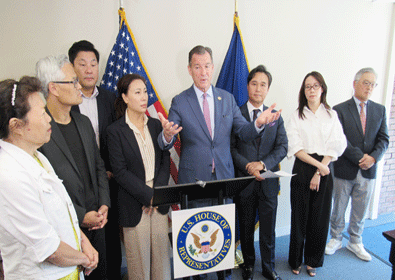
‘호주 전용 전문직 취업비자’ 대상에 한국인 포함 법안 재추진
E-4에 E-3 추가 투트랙 진행이민당국의 조지아주 현대 전기차 배터리 공장 단속 사태에 따른 후폭풍이 거세게 일고 있는 가운데 호주 전용 전…
전문직 취업비자 수수료 ‘10만 달러’로 올린다

VA 사전투표 시작…11월 1일까지
오는 11월 4일 버지니아 선거를 앞두고 오늘(19일)부터 11월 1일까지 사전투표(Early Voting)가 실시된다. 사전투표는 미리 투표…
중학생들 등굣길 학교 정문서 불체자 추격·체포 ‘경악’

“H-1B비자 10만 달러 수수료, 국익부합시 사례별로 예외허용”
전문직 비자 수수료 인상 포고문에 서명하는 트럼프 [로이터]미국 정부가 ‘전문직 비자’로 불리는 H-1B 비자 수수료를 1인당 10만 달러(약…
22기 SF 평통 신청 마감, 정원 미달**추후 추가모집
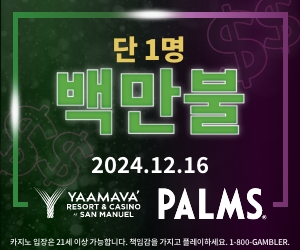
오늘 하루 이 창 열지 않음 닫기 








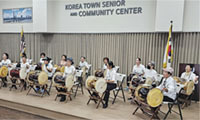
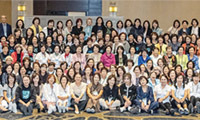




















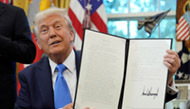





















.png)


댓글 안에 당신의 성숙함도 담아 주세요.
'오늘의 한마디'는 기사에 대하여 자신의 생각을 말하고 남의 생각을 들으며 서로 다양한 의견을 나누는 공간입니다. 그러나 간혹 불건전한 내용을 올리시는 분들이 계셔서 건전한 인터넷문화 정착을 위해 아래와 같은 운영원칙을 적용합니다.
자체 모니터링을 통해 아래에 해당하는 내용이 포함된 댓글이 발견되면 예고없이 삭제 조치를 하겠습니다.
불건전한 댓글을 올리거나, 이름에 비속어 및 상대방의 불쾌감을 주는 단어를 사용, 유명인 또는 특정 일반인을 사칭하는 경우 이용에 대한 차단 제재를 받을 수 있습니다. 차단될 경우, 일주일간 댓글을 달수 없게 됩니다.
명예훼손, 개인정보 유출, 욕설 등 법률에 위반되는 댓글은 관계 법령에 의거 민형사상 처벌을 받을 수 있으니 이용에 주의를 부탁드립니다.
Close
x